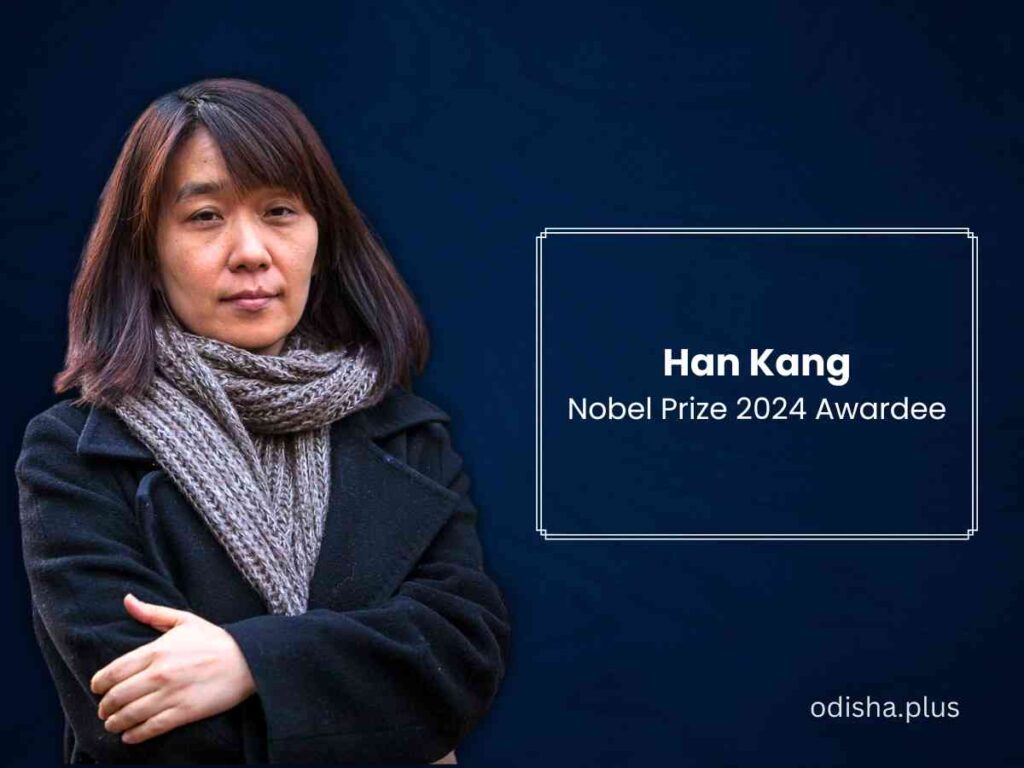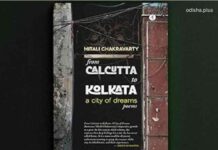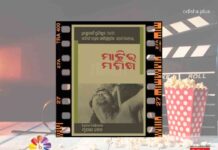Han Kang’s literary style is marked by its poetic language and profound psychological understanding
Bhaskar Parichha

Han Kang, the recipient of the 2024 Nobel Prize in Literature, is a distinguished South Korean writer recognized for her profound and often disturbing literary contributions. She achieved global recognition with her novel ‘The Vegetarian,’ which earned the Man Booker International Prize in 2016, preceding her Nobel accolade. This work delves into themes of identity, societal expectations and the physical self, narrating the journey of a woman who chooses to abstain from meat, resulting in significant repercussions for both herself and her family.
Kang’s literary style is marked by its poetic language and profound psychological understanding. Her writings frequently explore the intricacies of human experience, addressing themes such as trauma, memory and the essence of existence. Besides ‘The Vegetarian,’ she has produced other significant works, including ‘Human Acts,’ which investigates the Gwangju Uprising of 1980, and ‘The White Book,’ a contemplative piece on loss and the symbolism of the color white.
Complex Themes
Her literary works frequently delve into the intricate historical and cultural tapestry of South Korea, offering readers a profound exploration of the nation’s tumultuous past and its impact on contemporary society. Through her narratives, Han Kang tackles complex themes such as violence, oppression and the multifaceted quest for both personal and collective identity. She skillfully weaves together the personal experiences of her characters with the broader socio-political landscape, illuminating how historical events shape individual lives and collective memory.
In her acclaimed novels, Han Kang often confronts the darker aspects of human existence, examining the psychological scars left by trauma and the struggle for resilience in the face of adversity. Her characters grapple with their identities in a society marked by conflict and repression, reflecting the broader struggles of a nation that has endured significant upheaval. This exploration of identity is not only personal but also collective, as she invites readers to consider how history and culture intertwine to influence the self.
Uncomfortable Truths
Han Kang’s distinctive voice and unique perspective have established her as a prominent figure in modern literature, resonating with readers across the globe. Her ability to articulate the complexities of the human experience, particularly in the context of South Korea’s historical narrative, has garnered critical acclaim and a dedicated following. Through her evocative prose and thought-provoking themes, she challenges readers to confront uncomfortable truths and engage with the deeper questions of existence, making her work both relevant and impactful in today’s literary landscape.
At the age of twelve, Han Kang discovered a concealed ‘book’ hidden within a bookcase in her home in Seoul, its spine facing the wall. This item was an album containing photographs from the 1980 massacre of student protestors in Gwangju, an event of which the young Han was previously unaware and which continues to be largely overlooked in South Korea to this day.
The sight of disfigured corpses profoundly affected her, as she reflected years later in an interview with The Guardian. For the 51-year-old author, who is the first Korean recipient of the Nobel Prize in Literature, this revelation established the groundwork for her enduring literary focus on the human body. It transformed into a symbol not only of violence but also of profound resilience, prompting inquiries into the essence of humanity and its capacity for extreme brutality.
These issues are prominently showcased in her two most acclaimed works. In The Vegetarian (2007) – her Noble moment, Han narrates the tale of a woman whose sudden aversion to meat, triggered by disturbing dreams, results in her suffering from abuse and exploitation, ultimately leading to a rejection of her own body.
Sorrow – Trauma – Horror
The second work, Human Acts (2014), addresses the Gwangju Uprising more explicitly, providing a stark and unflinching portrayal of the violence that ensued. What elevates her narratives of isolated individuals and disjointed societies, infusing them with a sense of universal humanity, is a poetic intensity that transcends the themes of sorrow, trauma and horror.
Han is the 18th woman to receive the Nobel Prize in Literature. The Swedish Academy, which has faced criticism for its male-dominated and Eurocentric perspectives, has made a notable decision by honoring a writer who exposes the superficial layers of civilization to reveal the underlying injustices. This choice carries a unique, poignant resonance that could easily be attributed to Han’s literary style.
(The author is a senior journalist and columnist. Views expressed are personal.)

























